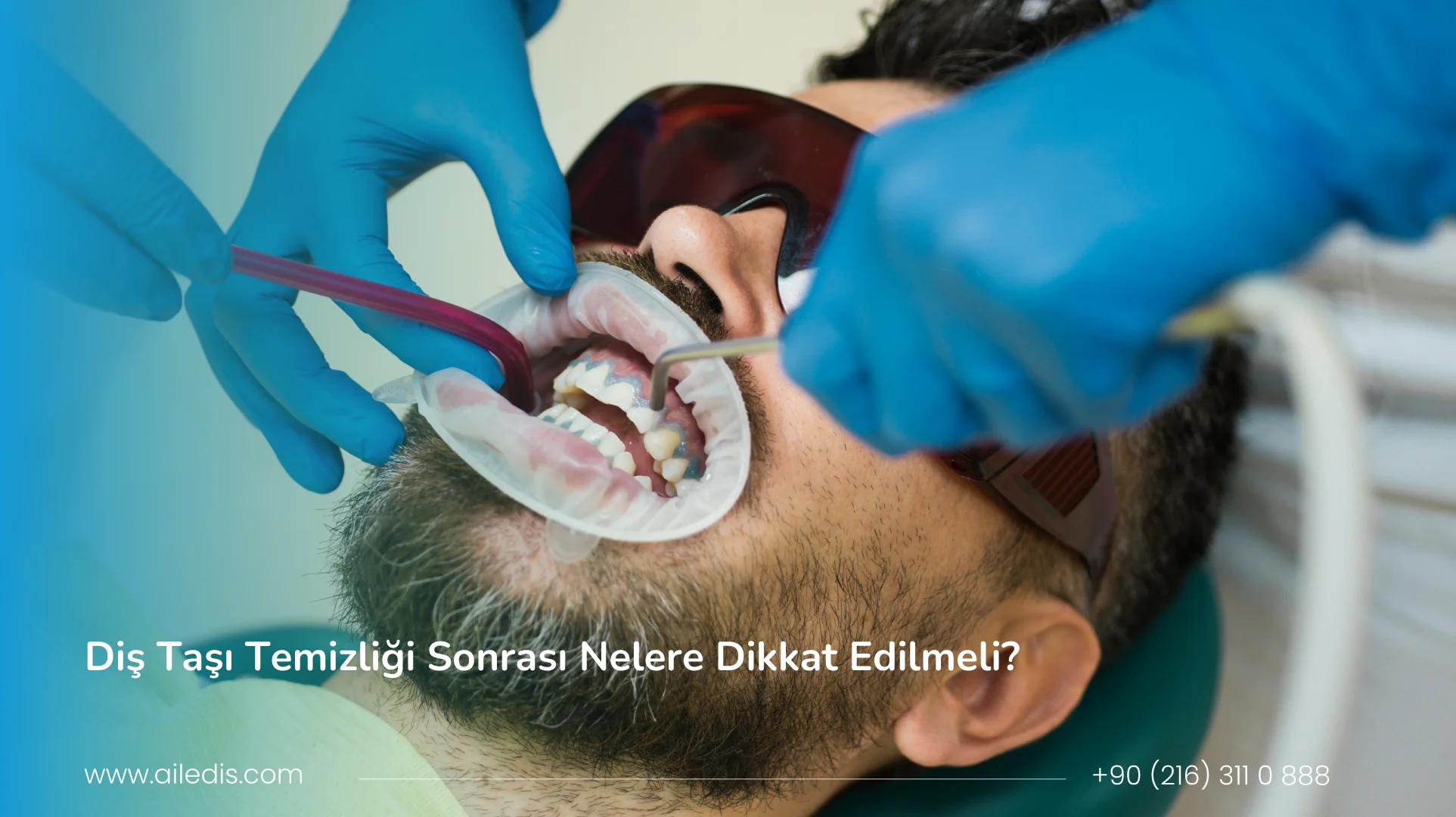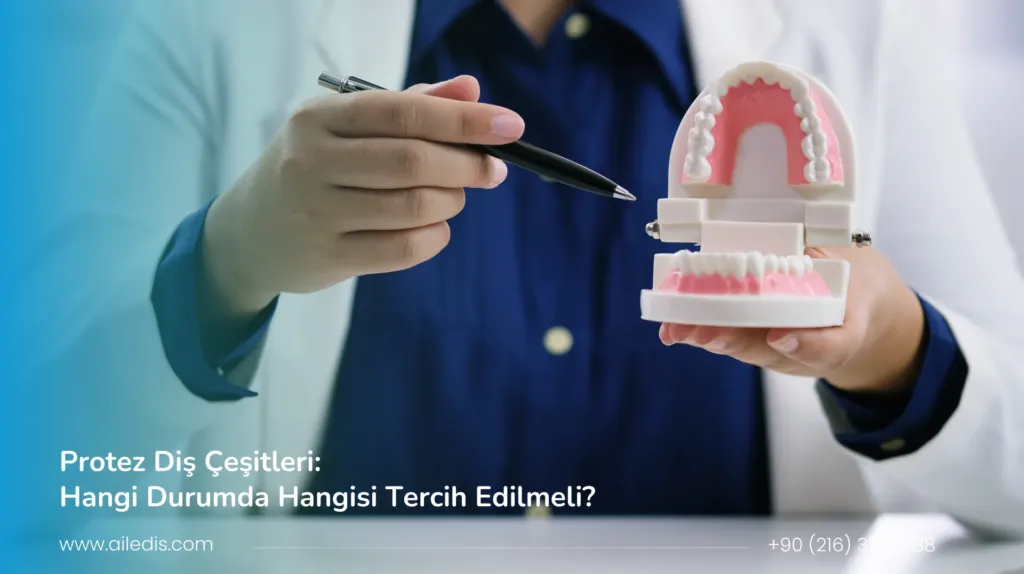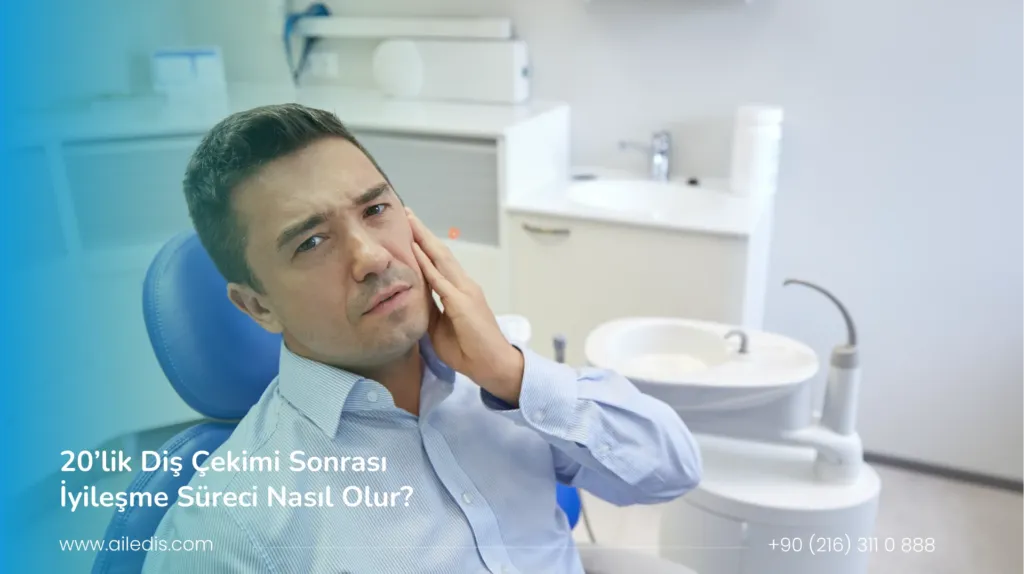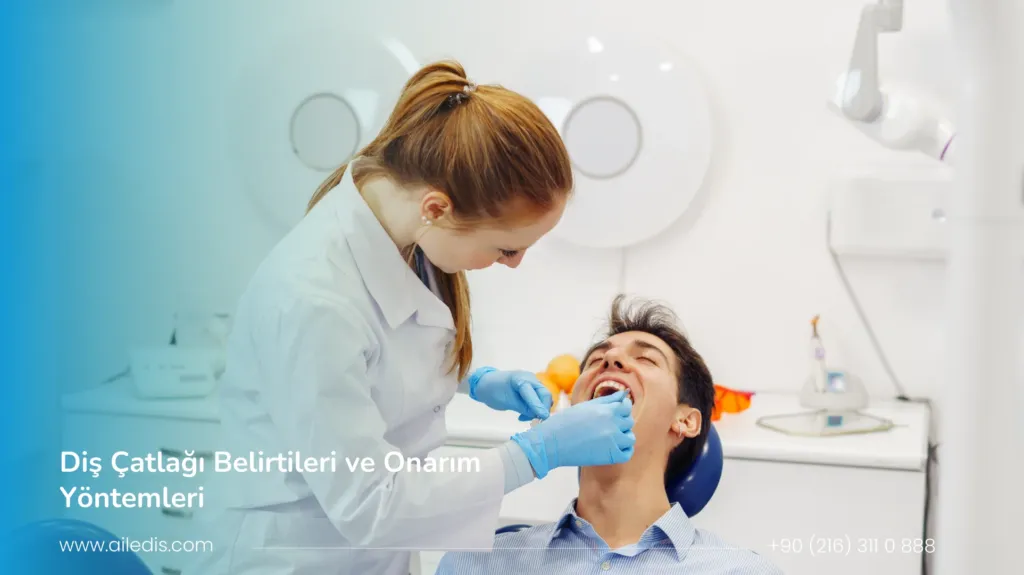calculus cleaning, , It is one of the most important steps in maintaining oral and dental health. Plaque and tartar, which accumulate on the tooth surfaces over time, not only create an aesthetic problem; It can also cause serious discomfort such as gingivitis and tooth loss. For this reason, having professional dental calculus at regular intervals forms the basis of a healthy mouth structure.
PRIVATE FAMILY DENTAL CLINICIt performs the cleaning process of tartar with modern devices and sensitive ultrasonic systems. After the procedure, the surface of the teeth is smoothed and the bacteria are made difficult to re-adjust.
However, there are some points to be considered after this process; If the right care is not taken, tenderness or temporary discomfort may occur in the gums.
In this article, What should be considered after dental calculushow to take care of your oral care during the healing process and Expert recommendations of Family Dental Clinic You will find step by step.
Get ready to learn the right methods to take your oral hygiene to the next level.
What is tartar cleaning and why is it done?
Dental calculus is the process of professional cleaning of plaque and tartar on teeth. This procedure, which is administered by dentists, is one of the most effective ways to maintain oral health. Plaque is mineralized over time and turns into calculus, which can cause gum diseases.
The main purpose of tartar cleaning is to eliminate harmful bacteria that accumulate in the mouth. In this way, it is possible to prevent gingivitis and improve general oral health. It also helps to relieve bad breath.
Tooth calculus formation process
Dental calculus occurs as a result of hardening of mineral and bacteria residues that accumulate on the teeth over time. When adequate attention is paid to oral hygiene, the plaque layer quickly accumulates. These plaques can cause inflammation when they come into contact with the gums.
If this hardening plate is not cleaned, it becomes a calculus. Dentals usually appear yellow or brown in color and are aesthetically irritating, as well as threatening oral health. It is possible to slow down this process with regular brushing and flossing.
Dental stone cleaning stages
Dental calculus is a procedure performed by the dentist. First, the patient undergoes an oral examination and the density of the dental calculus is determined. Then, with special tools, the plates and stones on the tooth surface are carefully removed.
After the cleaning process, the teeth are usually rinsed with water or air. At this stage, fluorine application can be made to protect the fluorine. Finally, appropriate oral care recommendations are offered to the patient and a follow-up appointment is made. Thus, it is aimed to obtain a healthy mouth structure.
Contribution of dental calculus to gingival health
Teeth cleaning plays an important role in maintaining gingival health. Dental calculus can be formed as a result of the accumulation of bacteria and plaques and irritate the gums. This condition can cause inflammation and cause periodontal diseases.
With the cleaning process, the risk of infection in the gums is reduced. Healthy gums keep teeth stronger and support oral health. With regular cleaning, the general health status of individuals improves.
Sensitivity and duration after calculus cleaning
In some individuals after tartar cleaning (detarthritis) Temporary sensitivity in teeth It is normal to see. This is due to the removal of tooth surfaces by cleaning the dental calculus and plaque layer. Usually 1 to 3 days It decreases and passes completely in a short time.
PRIVATE FAMILY DENTAL CLINICemphasizes that sensitivity after tartar cleaning can be easily controlled with appropriate care habits. The use of soft-bristled toothbrushes, avoiding hot-cold foods and fluorine applications are among the most effective measures in this process.
Normal time of sensitivity
The duration of the sensitivity after calculus cleaning varies from person to person, depending on gingival health and depth of procedure. Usually 1–3 days lasts; In some cases, it can take up to 5 days.
sensitivity; The smoothing of the tooth surfaces is caused by the recovery of the gingival line and the temporary release of the nerve endings. This process is a natural recovery phase. However, if the pain lasts or increases, it is necessary to consult a dentist.
| Sensitivity level | mean time | Recommended measure |
| Light | 1–2 days | Rinse with warm water, gentle brushing |
| Middle | 2–4 days | Fluorous toothpaste, avoiding cold foods |
| Severe | 5 days and above | Dentist control, local fluorine application |
Reducing sensitivity after calculus cleaning
The following recommendations can be applied to relieve sensitivity after cleaning:
- Avoid hot-cold foods. Sudden temperature changes can stimulate tooth nerves.
- Use a soft-bristled toothbrush. This ensures effective cleaning without irritating the gums.
- Prefer fluoride pastes and gargles. Strengthens tooth enamel and reduces sensitivity.
- Do not neglect oral care. Regular cleaning prevents bacteria from re-establishing.
These recommendations usually provide relief within a few days.
Benefit of Fluorine Application
fluorine application, Reinforcing tooth enamel and it is an effective method that reduces sensitivity. Especially after calculus cleaning, fluorine treatment repairs the weakened enamel layer and prevents the formation of new bacteria.
In addition, fluoride substances Protects gum health by reducing bacterial production. When applied regularly, it also helps to reduce the formation of tartar. This method is of great benefit both in eliminating sensitivity and in maintaining long-term oral health.
Nutrition and oral care after dental calculus
Since oral tissues may be more sensitive after cleaning, Attention should be paid to eating habits. The first few hours after the procedure, very hot or very cold foods should be avoided.
Things to consider in oral care:
- Brush the teeth with a soft brush twice a day.
- Gently use the dental floss, do not put pressure on the gums.
- Use antiseptic or fluoride mouthwash.
- Maintain the moisture balance of the mouth by increasing the water consumption.
These simple habits accelerate the healing process and help the gums regain their former health.
Nutritional recommendations and foods to avoid
Since the tooth surfaces become more sensitive after calculus cleaning, acidic and sugary foods should not be consumed for a while. Such foods can weaken the enamel surface.
Things to avoid:
- carbonated drinks
- sugary desserts
- Acidic foods such as lemon and vinegar
- Extremely hot or cold foods
Recommended foods:
- Warm soups, yogurt, dairy products
- Fibrous vegetables (carrots, cucumbers)
- Foods that contain magnesium and calcium
A balanced diet both supports the repair of gingival tissues and prevents the formation of new tartar.
What to consider in oral hygiene
Extra care should be taken to oral hygiene in the post-dental cleaning period. Brush your teeth twice a day, morning and evening. Clean the debris from the interfaces using dental floss every day.
In addition, it is necessary to change the toothbrush every 3 months and use the correct brushing technique.. With circular and gentle movements Brushing provides both effective cleaning and does not harm the gums.
When should the first meal be eaten after cleaning?
Since the gums can be sensitive after calculus cleaning, the first meal at least 30 minutes later Food is recommended. This time is necessary for the regeneration of the protective layer in the saliva.
In the first meals, soft foods should be preferred:
- Warm Soup
- Yogurt
- Bananas or boiled vegetables
Avoiding hard, acidic or hot foods helps the gums heal faster.
Gingival healing and control process
Gingival healing is an important process after calculus cleaning. Some patients may experience mild bleeding or tenderness after cleaning. This condition is usually normal and is considered as part of the regeneration process of the gums.
Regular follow-up examinations are of great importance during recovery. The dentist can check the health of your gums and detect possible problems at an early stage. Thus, periodontal health is protected and future problems are prevented.
Is bleeding gums normal?
Bleeding of the gums, usually occurs as a symptom of gum disease. Mild bleeding after calculus cleaning can be considered normal; Because the gums can become sensitive during this process. However, caution should be exercised in case of ongoing or excessive bleeding.
If your gingival bleeding recurs frequently, you may be having a periodontal problem. In this case, it is important to talk to a specialist physician. Healthy gums should look fit; It should be protected with regular maintenance and controls.
Follow-up examinations during the recovery period
The healing process after calculus cleaning is of great importance in terms of protecting gingival health. During this period, regular follow-up examinations should be done. The dentist can detect possible problems at an early stage by checking the condition of the gums.
During examinations, the condition of the teeth and gums is evaluated. In addition, the patient’s oral hygiene habits are also reviewed. Staying true to the recommended treatment or care plans in this process helps to achieve a healthy mouth structure.
Preventing recurrent stone formation after calculus cleaning
Dental calculus is one of the basic applications in the protection of oral health. However, it is very important to create the right oral care routine so that the tartar does not reoccur after the procedure. Regular tooth brushing, flossing, healthy nutrition and periodic controls are indispensable for this process.
PRIVATE FAMILY DENTAL CLINICIt offers personalized care recommendations to its patients after calculus cleaning. The aim is not only to clean the existing stones, but also to prevent their regeneration.
In this content, you will find how to do oral care after the procedure and the points to be considered in order to maintain long-term gingival health.
Regular tooth brushing and flossing
The most effective way to prevent the formation of tartar is to brush regularly and use dental floss.
At least twice a day, Toothpaste with fluoride Correct brushing with the right reduces plaque accumulation and protects the gums.
Using a soft-bristled toothbrush provides effective cleaning without damaging the tooth enamel.
Dental floss prevents bacterial formation by removing plaque and food residues between the teeth. Making these applications regularly every day plays a critical role in the prevention of both tartar and gum diseases.
Family dental specialist recommendation:
- Brush your teeth at a 45° angle, in circular motions from the gums to the tooth.
- Use dental floss at least once a day.
- Refresh your brush every 3 months.
Professional cleaning frequency (how many months?)
Teeth cleaning is not just an aesthetic procedure; It is necessary for the protection of gum health.
It is generally recommended to have a professional calculus cleaning every 6 months. However, depending on the tooth structure, eating habits and oral hygiene, this period may vary from person to person.
In people with frequent tartar formation The cleaning interval can be reduced to 3-4 months.
Family dental clinic, aims to protect the health of the gums with regular controls by creating follow-up plans suitable for the mouth structure of its patients.
| Control frequency | who is suitable |
|---|---|
| every 6 months | Individuals with normal oral hygiene |
| Every 3–4 months | People with intense tartar or gum problems |
Nutrition and lifestyle effect
Another important reason for the formation of tartar is eating habits and lifestyle.
Sugary, starchy and acidic foods cause the growth of bacteria in the mouth and accelerate the formation of plaque.
Following a balanced diet, especially consuming foods rich in vitamin C and calcium, strengthens the gingival tissue.
In addition, smoking facilitates the formation of tartar by disrupting the dry mouth and bacterial balance.
Drinking water regularly provides natural cleaning in the mouth by increasing saliva production.
Things to consider:
- Avoid sugary snacks.
- Limit the consumption of acidic beverages.
- Increase daily water consumption.
- Quit smoking or minimize.
Teeth Cleaning and Care Protocols in Private Family Dent
PRIVATE FAMILY DENTAL CLINICIt treats dental calculus cleaning not only as a mechanical process, but as a comprehensive oral health process.
Specialist physicians determine the appropriate cleaning method according to the patient’s mouth structure and then offer preventive care recommendations.
Cleaning procedures applied in the clinic are carried out without any roughness on the tooth surfaces. Thus, it becomes difficult for bacteria to hold on again.
After the procedure, patients are informed about the care recommendations and control intervals that they can apply at home.
Thanks to this holistic approach, both gum diseases are prevented and long-term oral health is protected.
tartar cleaning done by specialist physician
Professional cleaning by specialist dentists is one of the most effective ways to maintain oral health.
Ultrasonic devices and special hand tools used during calculus cleaning remove tartar and plaque without damaging the tooth enamel.
When this process is applied regularly;
- The risk of gingivitis (gingivitis) is reduced.
- The natural color of the teeth appears.
- Bad breath disappears.
- The progression of periodontal (gingival) diseases is prevented.
Family dental clinicIt provides effective cleaning and care services in a short time by prioritizing patient comfort.
Personalized control plan and tracking
Process after tooth calculus cleaningvaries from person to person. Therefore Family dental cliniccreates a personalized control and follow-up plan for each patient. The patient’s mouth structure, tartar formation rate, nutritional habits and brushing routine are evaluated.
Regular control examinations play a critical role in preventing the formation of stones again.
During these checks, additional cleaning is done if necessary and gum health is re-evaluated.
Long-term protection of periodontal health
After dental calculus Long-term protection of periodontal healthIt is possible with regular maintenance and follow-up.
Brushing your teeth with the right techniques, using dental floss and having professional cleaning at regular intervals prevents gum diseases to a large extent.
In addition, general health factors such as stress management and balanced nutrition also support gum health.
Family Dental Clinic Specialists, taking into account these elements in regular control appointments, presents personal recommendations to their patients.
A long-term periodontal care plan helps you maintain not only dental calculus formation, but also your overall oral health.
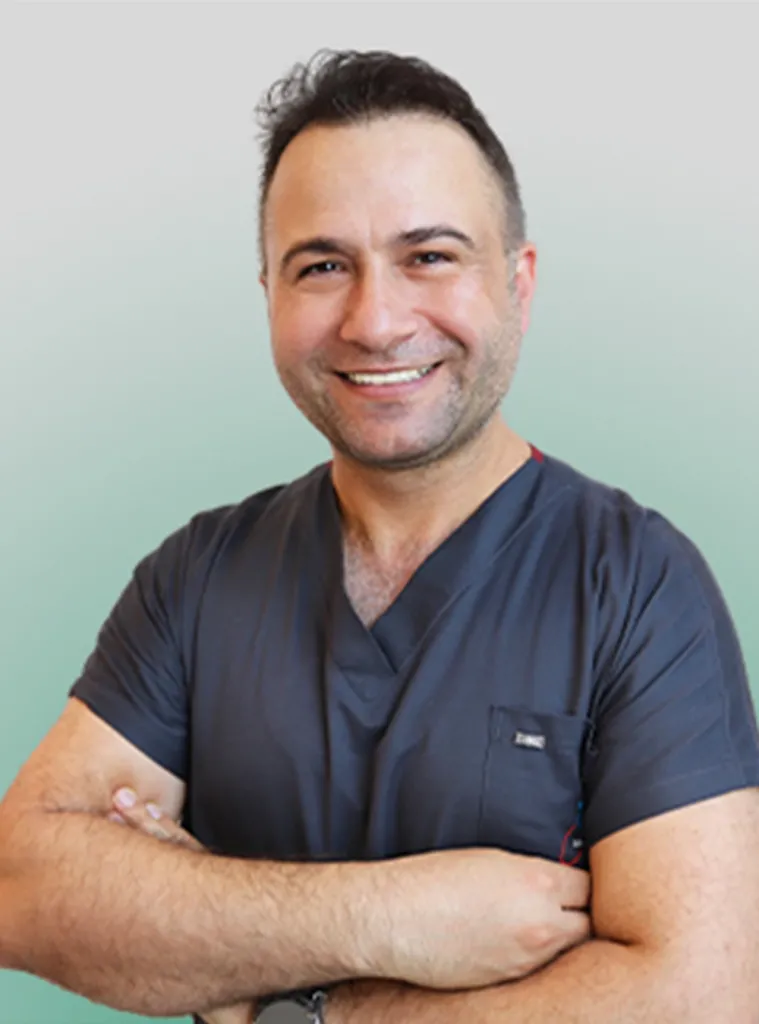


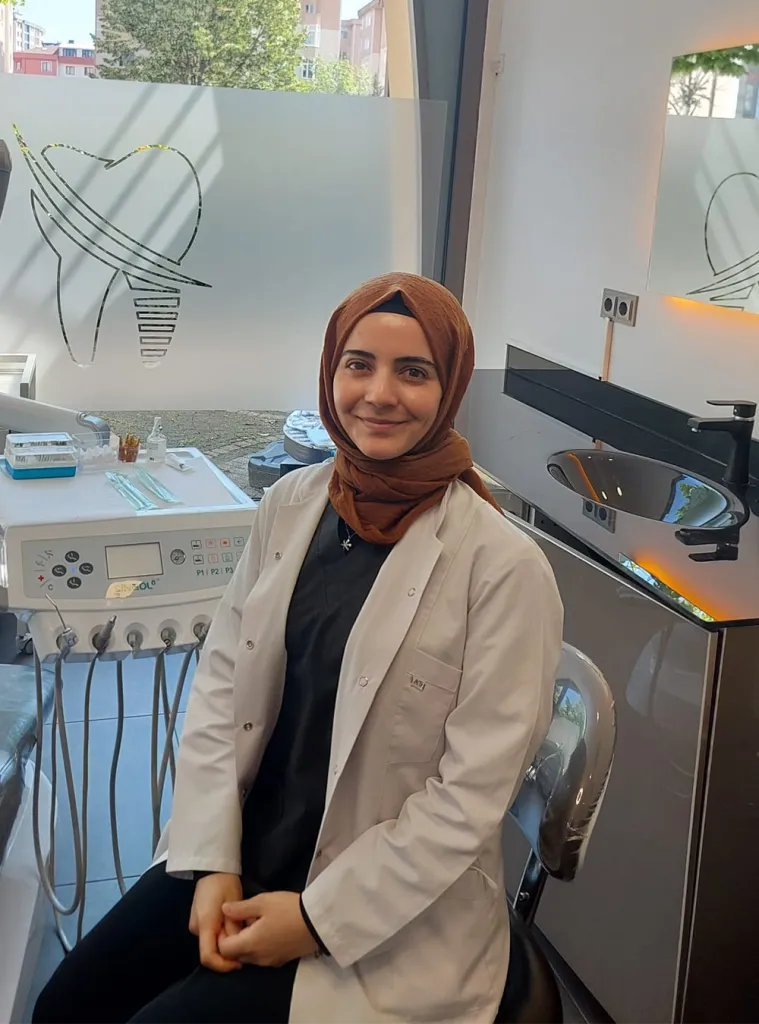
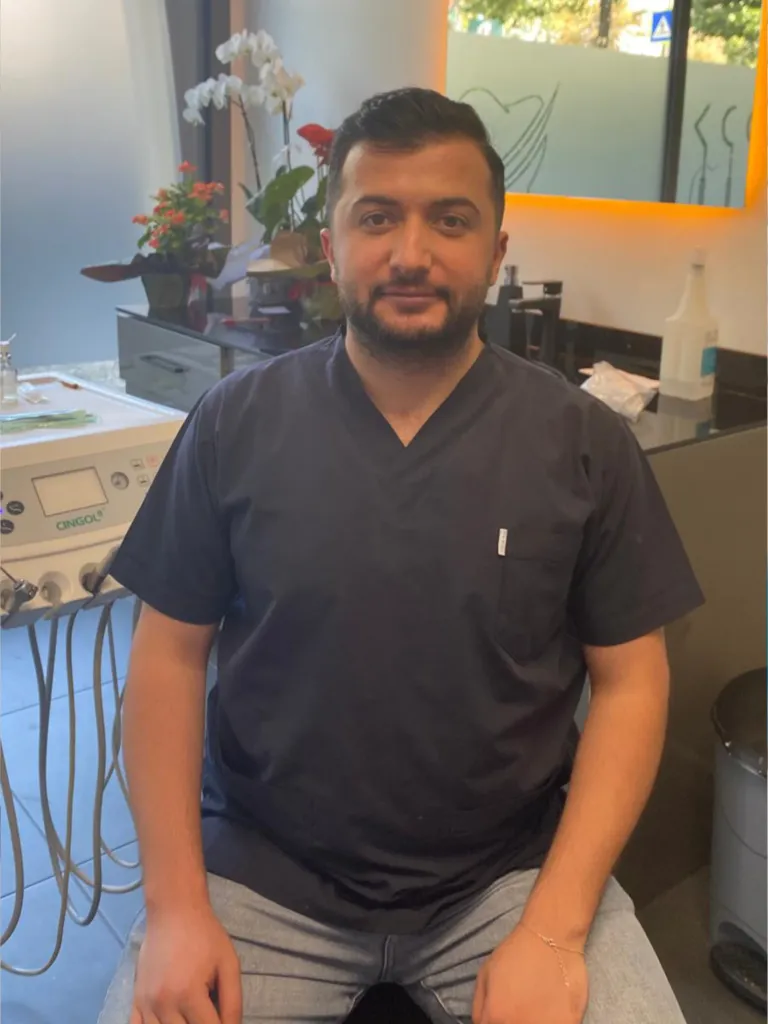


Frequently Asked Questions
Does tartar removal hurt?
Pain is usually not felt. During the procedure, you may only feel slight pressure or a cold sensation. If your gums are sensitive, local anesthesia may be applied.
Is it normal for my gums to bleed after cleaning?
Yes, light bleeding lasting 1–2 days after cleaning is normal. If the gums are inflamed, this period may be slightly longer.
When can I eat after a dental cleaning?
You can eat approximately one hour after dental scaling. However, you should avoid excessively hot or acidic foods for the first few days.
How long does the sensitivity last?
Mild sensitivity after cleaning will subside within 2–3 days. Using a desensitizing toothpaste during this period is beneficial.
How often should dental tartar cleaning be performed?
Dental scaling is generally recommended every six months. However, for individuals with gum disease, this interval may be shorter.
Does tartar removal damage tooth enamel?
No, cleaning with professional devices does not damage the enamel. On the contrary, it smooths the tooth surface, reducing plaque formation.
Do teeth become whiter after cleaning?
Yes, teeth appear brighter and whiter because surface stains and buildup are removed.
Can tartar be cleaned at home?
No, cleaning done at home is only superficial. Hardened tartar can only be removed with professional ultrasonic devices.
How should care be provided after dental tartar removal?
On the first day, gentle brushing should be done, acidic drinks should be avoided, and plenty of water should be drunk. Regular flossing also prevents new tartar formation.


